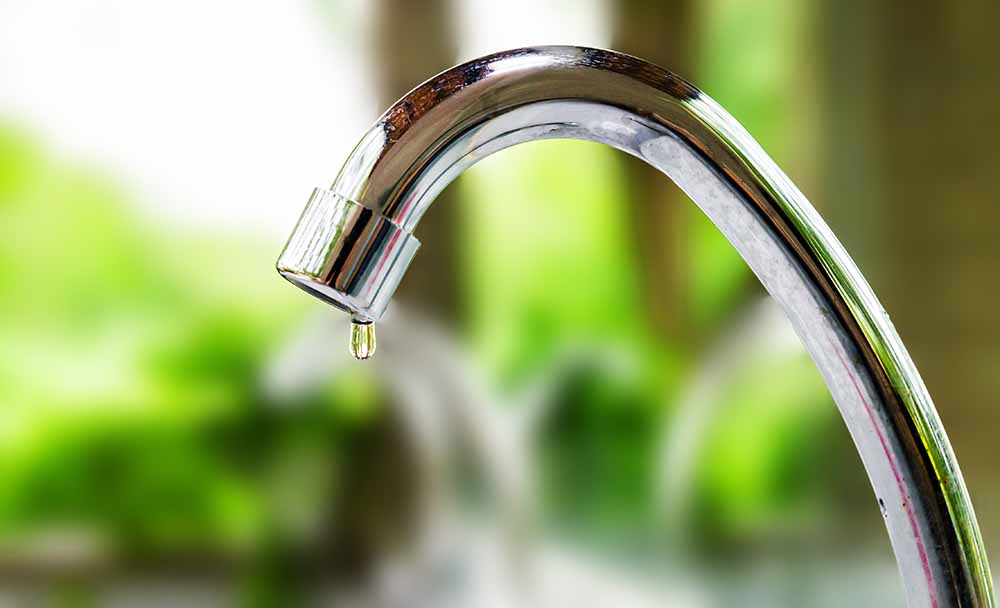
Considering that the planet is two-thirds water, and Canada has more than 20 percent of the world’s freshwater, it can be hard to imagine ever running out of the stuff. Despite this, the effects of climate change mean droughts are increasingly common in many parts of the world, including parts of Canada. Even if your community is not prone to droughts, water is still a finite resource, and conserving it can benefit both the planet and your bank account. Here are some of the easiest and most effective ways to save water at home.
Save at the sink Don’t be a drip Sing in the shower Hooray for bidet Kitchen aid Chill out Delay laundry day Save it for a rainy day Cut the lawn
Save at the sink
Saving water starts where we use it most: bathing, washing and flushing the toilet, which can account for up to half of your home’s total usage. Fortunately, it’s easy to make major reductions with a few relatively small changes to your habits, like turning off the faucet while you brush your teeth, lather your hands, or shave.
Don’t be a drip
Leaky faucet? That can add up to thousands of litres of wasted water every year, which makes it more than worth the cost of a plumber visit in the long run.
Sing in the shower
Showers and baths are a major source of water usage, and installing a low-flow shower head is an easy way to cut back. Older shower heads can use up to 20 litres per minute, but newer low-flow models do the job using less than half that. Whatever you’re using, shorter showers and fewer baths will go a long way to reducing your water use. To keep track of how much you’re using, try making a playlist of your favourite three-and four-minute songs and using it as a timer.
Hooray for bidet
An old toilet can use up to 20 litres per flush, so switching to a dual-flush or low-flush model is an easy way to cut that figure in half, and make a serious dent in your monthly usage. Installing a bidet might increase your home water usage slightly, but the money you’ll save on toilet paper (not to mention the approximately 140 litres of water needed to make each roll) will be a win for you and the planet.
Kitchen aid
The water you use to wash dishes is another big part of your monthly household usage, but it’s easy to cut back here as well. Firstly, instead of washing each dish under running water, use the washtub method: Fill one sink with hot, soapy water and use another sink or a washtub to rinse. Also, it may be counterintuitive, but washing full loads of dishes in the dishwasher is much more efficient than hand-washing, both in terms of water and energy use. For extra points, set the timer on your dishwasher to run at night when energy rates are lower.
Chill out
If you’re partial to a glass of cool water from the tap, try keeping a pitcher of cold water in the fridge instead of letting the water run until it gets cold.
Delay laundry day
Do you need to wash your jeans every time you wear them? Washing clothes is another big source of water usage, and wearing clothes multiple times between washes won’t just save you water and energy - it’ll also save you money by helping your clothes last longer. When the time comes to replace your washing machine, spending a little more money on a high-efficiency unit can also help lower your usage for many years to come. Whatever kind of washer you currently have, pre-treating stains and choosing shorter cycles will get your clothes just as clean with less water.
Save it for a rainy day
Your yard can use a surprising amount of water, especially if you have a large lawn and lots of thirsty potted plants. Installing a rain barrel will give you all the free water you need, even if it hasn’t rained in weeks. Watering your garden in the early morning or late evening will also cut down on the amount of water you lose through evaporation.
Cut the lawn
Lawns use a lot of water, which can put a strain on the municipal supply in dry areas, particularly during droughts. Instead, consider replacing your lawn with less thirsty clover, or better still, a meadow of pollinator-friendly native plants.
Jeremy Freed is a freelance writer and editor based in Toronto. His writing about fashion, travel, food and design appears in Sharp, Harry and re:Porter magazines, among many others.